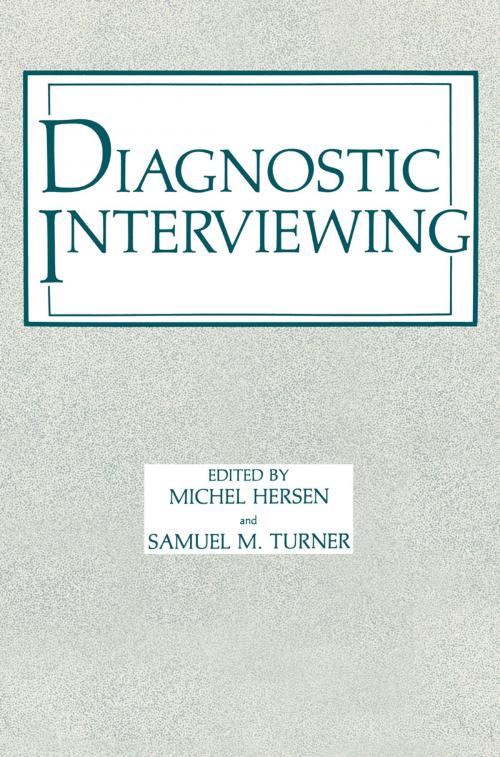Diagnostic Interviewing
Nonfiction, Health & Well Being, Psychology, Clinical Psychology, Applied Psychology, Medical| Author: | ISBN: | 9781461568261 | |
| Publisher: | Springer US | Publication: | December 6, 2012 |
| Imprint: | Springer | Language: | English |
| Author: | |
| ISBN: | 9781461568261 |
| Publisher: | Springer US |
| Publication: | December 6, 2012 |
| Imprint: | Springer |
| Language: | English |
Over the years, in our teaching of diagnostic interviewing to graduate students in clinical psychology, psychology interns, medical students, and psychiatric residents, we have searched for appropriate reading materials that encompass theoretical rationale, clinical description, and the pragmatics of "how to. " However, surprising as it may seem, there is no one work that includes the theoretical, the clinical, and the prac tical under one cover. This being the case, we thought it would be useful to us in our pedagogic efforts if we could put together such a text. And it is to this end that we developed the outline for our multiauthored text and presented it to Plenum Press for their review. We felt then, as we do now, that the material in this book simply does not represent "the cat being skinned in yet another way. " We sincerely believe that our stu dents really do need this one, and it is to them that we dedicate Diag nostic Interviewing. Our book is divided into three parts. In the first part (General Issues), basic interviewing strategies and the mental status examination are cov ered. The bulk of the book (Parts II and III) is devoted to examination of diagnostic interviewing for the major psychiatric disorders and for spe cial populations.
Over the years, in our teaching of diagnostic interviewing to graduate students in clinical psychology, psychology interns, medical students, and psychiatric residents, we have searched for appropriate reading materials that encompass theoretical rationale, clinical description, and the pragmatics of "how to. " However, surprising as it may seem, there is no one work that includes the theoretical, the clinical, and the prac tical under one cover. This being the case, we thought it would be useful to us in our pedagogic efforts if we could put together such a text. And it is to this end that we developed the outline for our multiauthored text and presented it to Plenum Press for their review. We felt then, as we do now, that the material in this book simply does not represent "the cat being skinned in yet another way. " We sincerely believe that our stu dents really do need this one, and it is to them that we dedicate Diag nostic Interviewing. Our book is divided into three parts. In the first part (General Issues), basic interviewing strategies and the mental status examination are cov ered. The bulk of the book (Parts II and III) is devoted to examination of diagnostic interviewing for the major psychiatric disorders and for spe cial populations.















